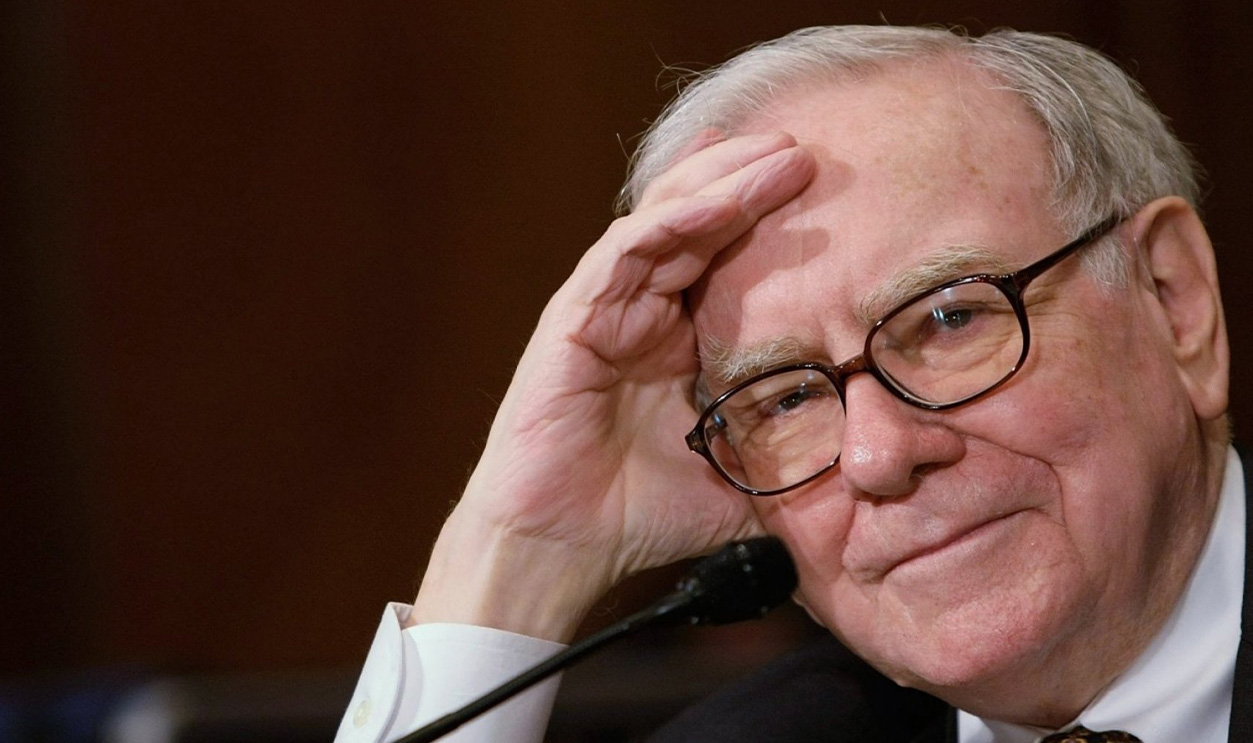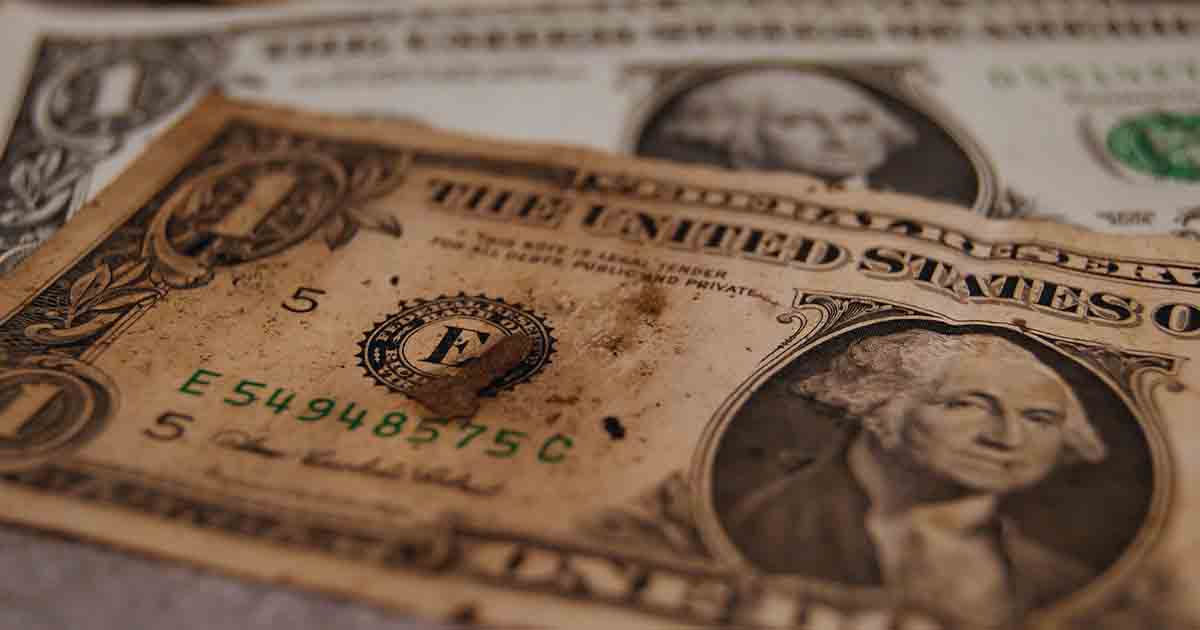30 Things You Shouldn't Do With Your Money, According To Warren Buffett
Warren Buffett is known as the "Oracle of Omaha" by many on and off Wall Street, due to his poignant and often correct advice about when and how to invest your money properly to get the greatest returns. But what about the things you shouldn't do with your money? Does Buffett have any advice for what not to do with your hard-earned cash? He sure does. Here are some of the things that Warren Buffett advises against doing with your money.

Live Above Your Means
Living beyond your means usually translates to spending more money than you actually have. Whether that's putting everything on a credit card, making exorbitant purchases that are unnecessary, or just generally poor financial discipline. Living above your means is one sure-fire way to financial ruin.
Spend Before You Save
Spending money is easy—but saving money is hard. If you start spending before you've saved a penny, before you know it there will be left to save. Your first bank account should always be a savings account and you should set up automatic deposits of small, unnoticeable amounts every month. Saving for the future means you'll have more to spend down the line.
Put Off Investment Opportunities
If there are excellent opportunities to invest your money in a company, business, or product that you believe in (and have done market research that indicates possible financial success), don't wait. Your cash in-hand will only depreciate over time, whereas money invested today will only appreciate over time—the time to start investing is now.
Try To Predict Market Movements
The market is always volatile and subject to change at any given moment on any given day. Trying to predict market movements is often futile and a waste of time. Your time and money would be better spent doing stock research to learn all you can about possible companies to invest your money in.
Not Invest In Yourself
You are the most important asset in your life. Investing your money in self-education is one of the most important aspects of financial literacy and greater financial success. If you want to invest your money, read and learn all you can about investments and investing. Education, Buffett says, is the most important tool an investor can have.
Blindly Follow The Market Herd
One of the very worst things you can do with your investment fund is to blindly follow where the markets are. That's what happened in 2008 when everyone and their dog went into real estate—we all know how that turned out. Buffett stayed the course in 2008 and sure enough, he was financially rewarded. Going against the crowd requires a great deal of patience and self-discipline, but it may pay off in the end.
Take On Too Many Commitments
It's easy to invest your money into everything out there—but having a portfolio that is too big will require more time, energy, and money than you may have. Taking on too many commitments will leave you (and your money) stretched thin. It's better, Buffett says, to be very selective in your investments and get used to saying 'no' to almost everything.
Thinking Short Term
Your financial investments are long-term ones, not short-term. Get yourself into the headspace that the investments you make today are for 5-10 years down the line. Don't expect to get rich quick and ignore anyone who says that investing in their company will make it so.
Trade Frequently
Making a trade of a bad stock is sometimes necessary. But patience is a virtue and having the foresight to see that your badly-performing stock today could be the best-performing one in a year's time is all part of the wisdom of a great investor. Giving away the farm when it's just a small outbuilding wouldn't make sense if we were talking property, would it?
 Viktoriia Hnatiuk, Shutterstock
Viktoriia Hnatiuk, Shutterstock
Borrowing Money
Putting yourself into debt, even relatively small amounts, is never a good idea. If you're investing and there's a downturn in the market, you'll be forced to sell your stocks at a lower price than normal and still be indebted to those who invested their money in you. Avoid borrowing money, whether you're investing it or not.
Acting Like You Have Unlimited Investment Opportunities
While, of course, you do have unlimited investment opportunities, behaving like you don't is a great way to be decisive and, most of all, careful about where you're putting your money. Buffett likes to say that "every investor should have a punch card with 20 or 20 investments throughout their lifetime", as a way to ensure that they make better financial decisions.
Upgrade Your House Unnecessarily
When you make your first million—or 100K or whatever—you shouldn't immediately take out a second mortgage and spend that money to make unnecessary upgrades to your home. Warren Buffett lives in the same home he bought in 1958 for $31,500. If your house is already functional and makes you happy, there's no reason other than lack of self-discipline as to why you should upgrade it or buy another one. Buffett's house from 1958? That's now worth $300,000.
Eat Extravagantly
Just because you have the money to buy filet mignon and shuck oysters all week, doesn't mean you should eat extravagantly. Eating cost-effective, healthy food that costs a pittance of the nightly restaurant experience is a great way to save money—even if you can afford it.
Get A Brand New Car
Another lesson about good investments: Warren Buffett, despite being worth billions, drove a 2006 Cadillac CTS until 2014, when he only upgraded to a 2014 XTS worth $46,000. It can be tempting to blow your hard-earned money on a brand-new car, but that's not a wise investment, as they depreciate in value the second they leave the lot.
Buy Brand-Name Products
Sure, brands have notoriety based on selling a great many products to people, but just because something has a brand name on it that you recognize, doesn't automatically mean it's a great product. Buy quality over brand-name products, every day of the week.
Continuously Buy Things You Don't Need
Sure, it can be nice to have that new suit (even though you have one or two already), or a better-looking couch, or anything that could be deemed excessive. While your mileage may vary on this point, continuously buying things you don't need because you have the money to do so is not a smart way of making your funds go as far as possible.
Pay For Everything With Your Debit Or Credit Card
By paying for everything with your debit or credit card, you're training yourself to not think as much about what you buy. Especially with the innovation of "Tap To Pay", thoughtless purchases are even easier. Carrying a limited amount of cash around with you is a great way to only spend what you have.
Save Coupons For A Rainy Day
Paying for things with coupons you may have earned from previous purchases, is a great way to save money and spend money without actually having to hand over cash. But, saving those coupons forever can mean they expire, or the company they're valid with could change their policy. Spend your coupons before it's too late!
 Monkey Business Images, Shutterstock
Monkey Business Images, Shutterstock
Smoke Or Drink Your Money Away
Warren Buffett is 93 years old and in excellent health, partially because he didn't spend all of his money on the usual vices of smoke or alcohol. Sure, a beer a day at your local watering hole may only be $5, but that's $100/month, which adds up to $1,200 per year. And cigarettes? Even more expensive. Avoid expensive vices and put that money to better use.
Pay Full Price For Something If You Don't Have To
While Black Friday may be the peak of capitalism-gone-mad, Warren Buffett is always looking for a discounted deal. You can find discounts for the things you really want somewhere, or you can wait. Avoid paying full-price for something if you can, as the market's volatility may mean that the stock you're looking at is cheaper next week.
Don't Take Gambles With Your Investments
Risks are there to be assessed and acted upon when the time is right—don't gamble on investments. Instead, educate yourself to the best of your ability as to what to buy and when. You'll come out on top, and find that you're following Rule 1 of Buffett's rules for investing: Don't lose money.
Buying The Latest Tech
The latest and greatest technology can be fantastic, but only if it's something you really need and will perform a specific function in a way that's going to make your life better. Buying the latest tech is often a marketing trap that most fall into when they upgrade their iPhone every year. It costs too much and you don't need to get it just because it's new.
Spend Large Amounts Of Money
Frugality is generally learned. Even when you have a lot of money—like Warren Buffett—you should try not to spend large amounts all at once. Unless the purchases you make are absolutely necessary, saving that money—or investing it to make it go even further—should be your top priority.
Invest In Low-Value Activities Or Items
If you are your greatest asset, then investing in activities or items with only temporary, depreciable value is a poor use of your money. Take the longest view possible of your investments and avoid paying top-dollar for low-value stuff.
Paying For Things Using Credit Cards
Putting yourself into credit card debt is real easy. Getting yourself out again isn't so easy. If you have a habit of paying for things using credit cards, stop doing it and start using cash. Not only will you not put yourself into debt, you'll have a hard limit as to what you can spend. Warren Buffett still has a credit card he got in 1964.
Buying Brand New Furniture
More frugality from Warren Buffett is that he borrowed furniture when his children were born, rather than buying brand new—despite that he could afford to. He generally advises against buying brand-new anything and that includes furniture. If your bed/couch is comfy enough, why replace it with something that costs 10 times the price?
Misjudging Earnings Potential
One of Warren Buffett's biggest mistakes was that he failed to invest early on in Amazon, because he didn't think it had the earnings potential. When investing your money, you need to take a broad look at the possibilities of a company before you invest. Hindsight is always 20/20, but you'll be forever kicking yourself if you don't know enough to take advantage of an opportunity.
Diversify Your Investments
While this may seem counterintuitive, and run counter to conventional investment wisdom, Warren Buffett prefers to do his research and invest money in a few stocks that he knows are going to be big winners, rather than investing in a bunch of different stock options and seeing what sticks. You spend less and your money goes further.
The Oracle Of Omaha's Best Advice
One of Buffett's most salient pieces of advice is to never make investment decisions with emotion. That emotionality cost Buffett almost $200 billion when he refused to sell Berkshire-Hathaway stock when the textile company was a failing business—Buffet always ranks it among his worst financial mistakes. His best advice is to make decisions without emotion, and base your investments on hard facts instead.


































